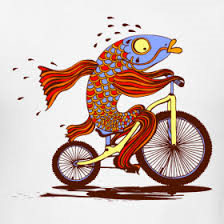I have been wondering how long it would take me to write this blog. It comes with some mixed feelings and apprehension, although I’m not sure why. So, I feel the need to come out…again…like start again with coming out. At the same time, I feel no need to yet the metaphor is so fun – like hide and go seek ‘in the closet, out, in another, in a bigger one, stuffier one…who will find me’. Maybe I just want a time machine and go back to 1986 and pass myself a note that says ‘do not tell your friend you think you might be a lesbian…DON’T DO IT’. I’ve never struggled with my sexuality, but I felt pressure to pick a side. In a binary system there isn’t a lot of choice. So way back in the heady days of androgyny and shoulder pads…(god…even singlets had them), if you were remotely attracted to the same sex you were gay. I was still into boys, liked them a lot, they liked me, and indeed I didn’t get to ummmm ‘test drive’ this same sex attraction for another 5 years. So…all that boy stuff in between was a phase?
So I want to re-out myself as more than likely bisexual. Although no-one really comes out as bisexual because it just doesn’t seem plausible to a lot of people who insist you must have a preference. Sure I do – sexy is sexy – done. Of course most people have their sexuality assumed by their relationship status. Which is why bisexuality itself doesn’t really ‘exist’ because monogamy insists on one partner at a time – the gender status of that person tends to define your sexuality publically. Except now I’m not even sure about my gender.
I’ve always been miss-gendered. Frankly that doesn’t bother me either. I have kind of handed over my gender status to the observer. If I’m seen as male that’s ok, except when I want to use a public toilet then I do feel grateful to be living in NZ where most people get that women sometimes have short hair and prefer shorts and jandals even in the middle of winter. But I do prefer unisex bathrooms, it just feels like anyone choosing to use them has their shit together.
Being a bisexual – bi-gendered person means I refuse to comply with most if not all usual norms around gender and sexuality however I am perpetually put into boxes, my identity is shaped by my relationships-family status and occupation. Labels serve others needs to make sense of the world, and especially themselves in relation to their own identity. The common normative assumptions form a comfortable zone of acceptance.
For the record ‘Bi’ is not a transitional sexuality, neither does it mean open to anything or anyone, at anytime, its not hypersexuality (sounds very sci-fi – like doing it at light speed). Bi women have a different experience than bi men, because of the implicit and explicit sexualisation of women for the pleasure of men, their bi status tends to be read more as sexual availability. The fear and misunderstanding for bisexual individuals comes from both gay and straight communities. People just can’t ‘figure it out’ and so make all sorts of strange and unusual statements to suggest there is something not quite right. Well – they couldn’t be more wrong. It feels pretty natural to me to be attracted to someone based on more than what they might or might not be packing in their undies.
But if I really could say anything to myself in 1986 it would be to not give myself a label and to trust my body to know and that shoulder pads do not look great when you already have actual shoulders.


